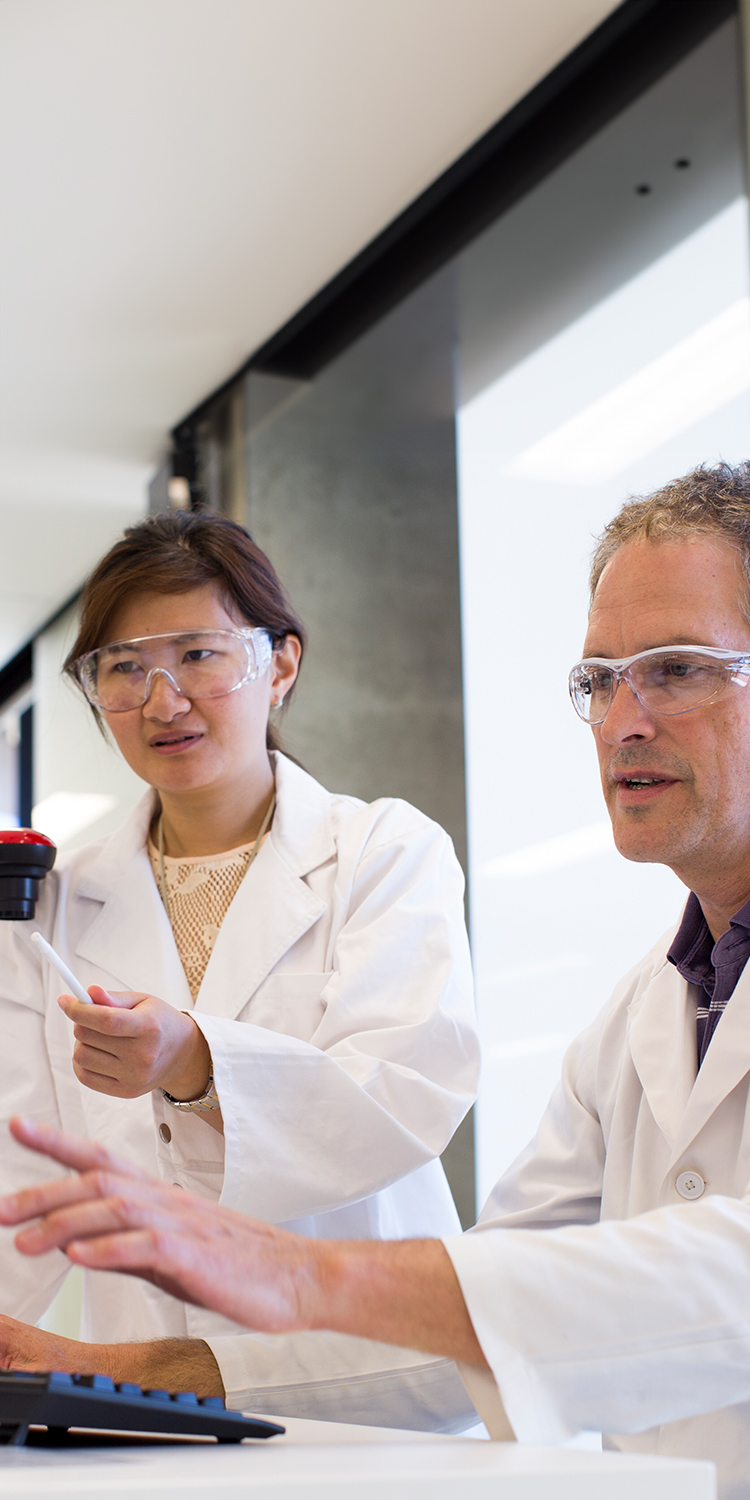Why Master of Science?
So far, biotechnology has enabled the growth of pest-resistant corn, cabbages cross-bred with scorpions, and fast-growing frankenfish – not to mention human skin, bones, cartilage and bladders. In the future, it could mean ears made entirely in labs, bionic wing attachments and synthetic super eyes with Wi-Fi.
Biotechnology is booming, with rising demand for specialists. From cutting-edge healthcare to improved agriculture and renewable energy, it has the potential to address some of the world’s greatest challenges. The future of biotech is ripe with opportunity. You can capitalise on this, joining an innovative and impactful field as a scientist, technician or trailblazing entrepreneur.
Overview
Our Master of Science is all about research skills, lifelong learning and industry-relevant professional development.
The Biotechnology specialisation has a strong focus on entrepreneurship, preparing you for the changing – and challenging – demands of the sector.
Build in-depth knowledge of the latest technologies and methodologies in biotechnology, such as genetic engineering, bioinformatics and molecular biology. Learn how to plan and execute laboratory experiments to solve real-world research problems. Understand the innovation process and key aspects of commercialisation. Identify new product opportunities and collaborate in teams to meet them. Choose specialised electives – from animal biotechnology to project management. Get a unique opportunity to undertake a year-long research project, open to academically advanced students only*. Study alongside active research experts, working at the cutting edge of biotechnology, where major advances are influencing vaccines, cancer and stem cell therapies. You’ll graduate prepared for dynamic careers in pharmaceuticals, healthcare, agriculture and environmental management. With its strong research focus, you can also use this degree as a pathway to a PhD.
*This option is only available to students that satisfy a specific GPA requirement after their first 48 units of study.








